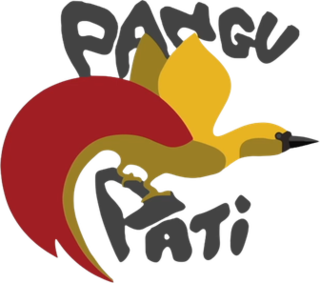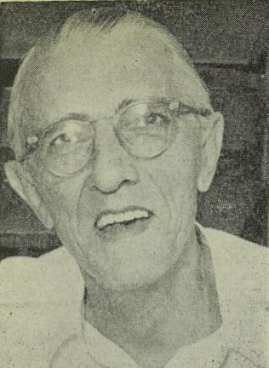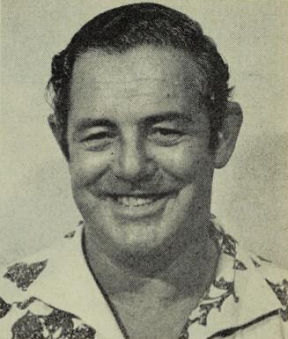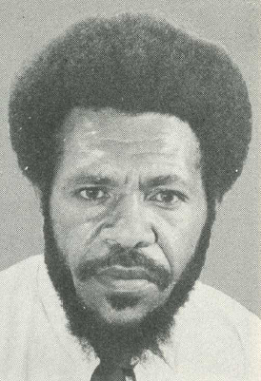
The Pangu Pati,officially Papua na Niugini Yunion Pati,is a nationalist and developmentalist political party on the centre-left in Papua New Guinea. The party is the oldest political party in Papua New Guinea and has held all levels of government throughout its history. As of 2023,it is the largest party in the National Parliament.

James Marape is a Papua New Guinean politician who has served as the prime minister of Papua New Guinea since May 2019. He has been a member of the National Parliament of Papua New Guinea since July 2007,representing the electorate of Tari-Pori Open in Hela Province in the New Guinea Highlands. He has held Cabinet Posts as Minister of Education (2008–2011),Minister of Finance (2012–2019),and Minister of Foreign Affairs (2023–present). Marape entered the 2022 elections under the banner of the Pangu Party and won more seats than any other party. He was therefore entitled to form the government. His new government was elected unopposed by the new parliament.

General elections were held in Papua New Guinea between 18 June and 9 July 1977,the first since independence from Australia in 1975. The Pangu Party led by Prime Minister Michael Somare emerged as the largest in the National Parliament. Somare subsequently formed a coalition government with the People's Progress Party (PPP) and several independent MPs. Voter turnout was 60.3%.

General elections were held in Western Samoa on 24 February 1979. Voting was restricted to matai and citizens of European origin,with the Matai electing 45 MPs and Europeans two. Although all candidates ran as independents,an opposition bloc had emerged following the 1976 election of Tupuola Efi as Prime Minister in Parliament.

Papua Besena was a political party in Papua New Guinea.

General elections were held in Papua New Guinea between 24 June and 8 July 2017. The writs for the election were issued on 20 April,and candidate nominations closed on 27 April.

General elections were held in the Territory of Papua and New Guinea between 19 February and 11 March 1972. They saw the election of the country's first female MP,Josephine Abaijah.

General elections were held in Papua and New Guinea on 31 August 1957.

General elections were held in Papua and New Guinea on 27 August 1960.

General elections were held in the Territory of Papua and New Guinea between 15 February and 15 March 1964. They were the first elections in the territory held under universal suffrage. Voter turnout among enrolled voters was 65%.

Ernest Alfred James was an accountant,newspaper proprietor and politician in the Territory of Papua New Guinea. He served as a member of the Legislative Council between 1951 and 1959.

General elections were held in the Territory of Papua and New Guinea between 17 February and 16 March 1968.

Donald Barrett was an Australian planter,army major,politician and sports coach in the Territory of Papua and New Guinea. He served as a member of the Legislative Council and House of Assembly in two spells between 1951 and 1968.

Atiheme Kimi was a Papua New Guinean politician. He served as a member of the House of Assembly between 1972 and 1973.

Paulus Arek was a Papua New Guinean politician and trade unionist. He served as a member of the House of Assembly between 1968 and 1973,and as Minister for Information from 1972 to 1973.
Oala Oala-Rarua was a Papua New Guinean educator,civil servant,trade unionist,politician and diplomat. He served as a member of the House of Assembly and Assistant Minister for the Treasury between 1968 and 1972,later becoming the first Lord Mayor of Port Moresby and High Commissioner to Australia.

Sir Percy Chatterton was an English-born Papua New Guinean educator,clergyman and politician. He served as a member of the House of Assembly from 1964 to 1972.

Ronald Thomas Dalton Neville was an Australia-born Papua New Guinean politician and businessman. He served as a member of the House of Assembly and National Parliament from 1964 to 1977.

Buaki Singeri was a Papua New Guinean politician. He served as a member of the House of Assembly and National Parliament from 1972 until 1977.
Pius Joseph Malip was a Papua New Guinean politician. He served as a member of the National Parliament from 1987 to 1988.












